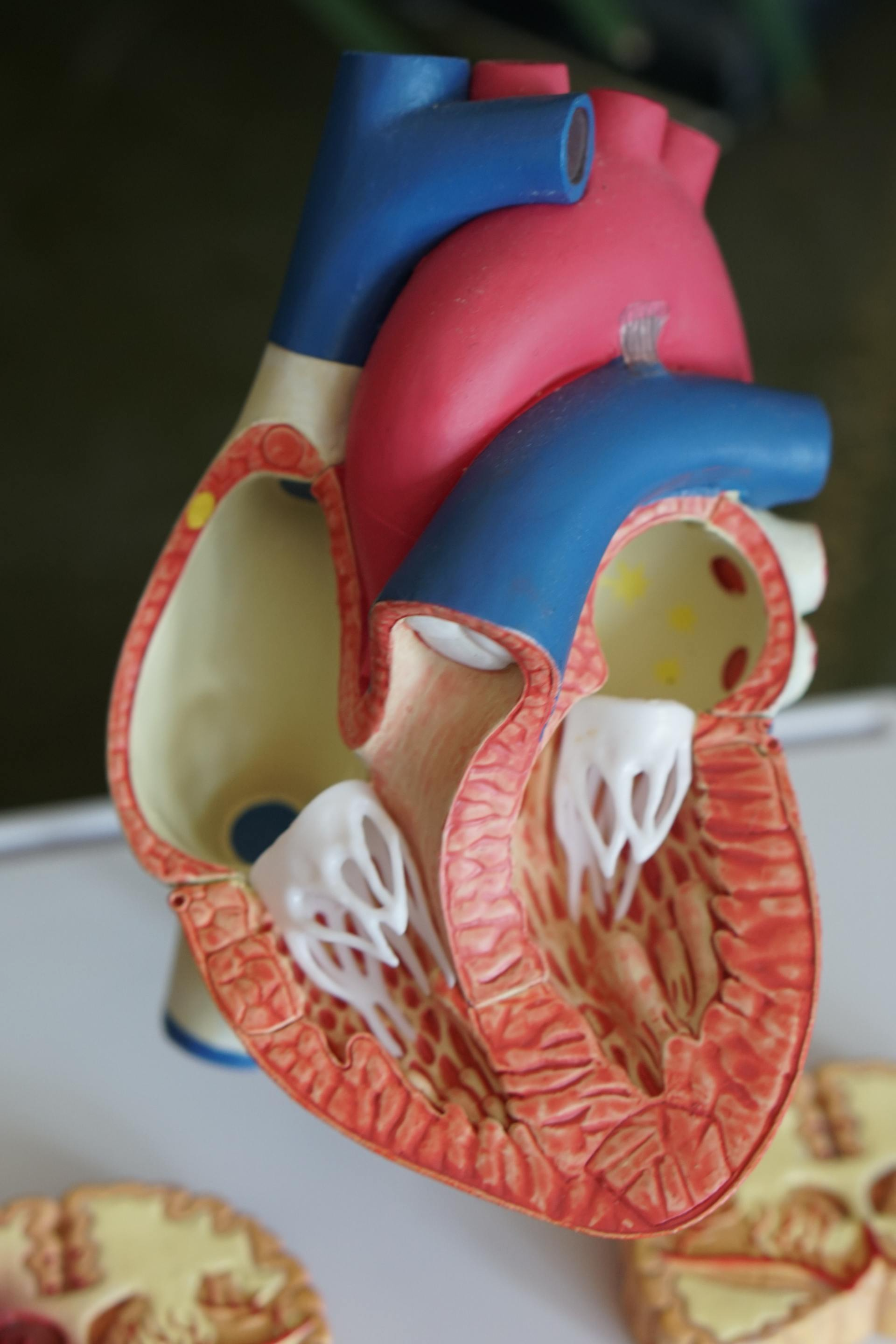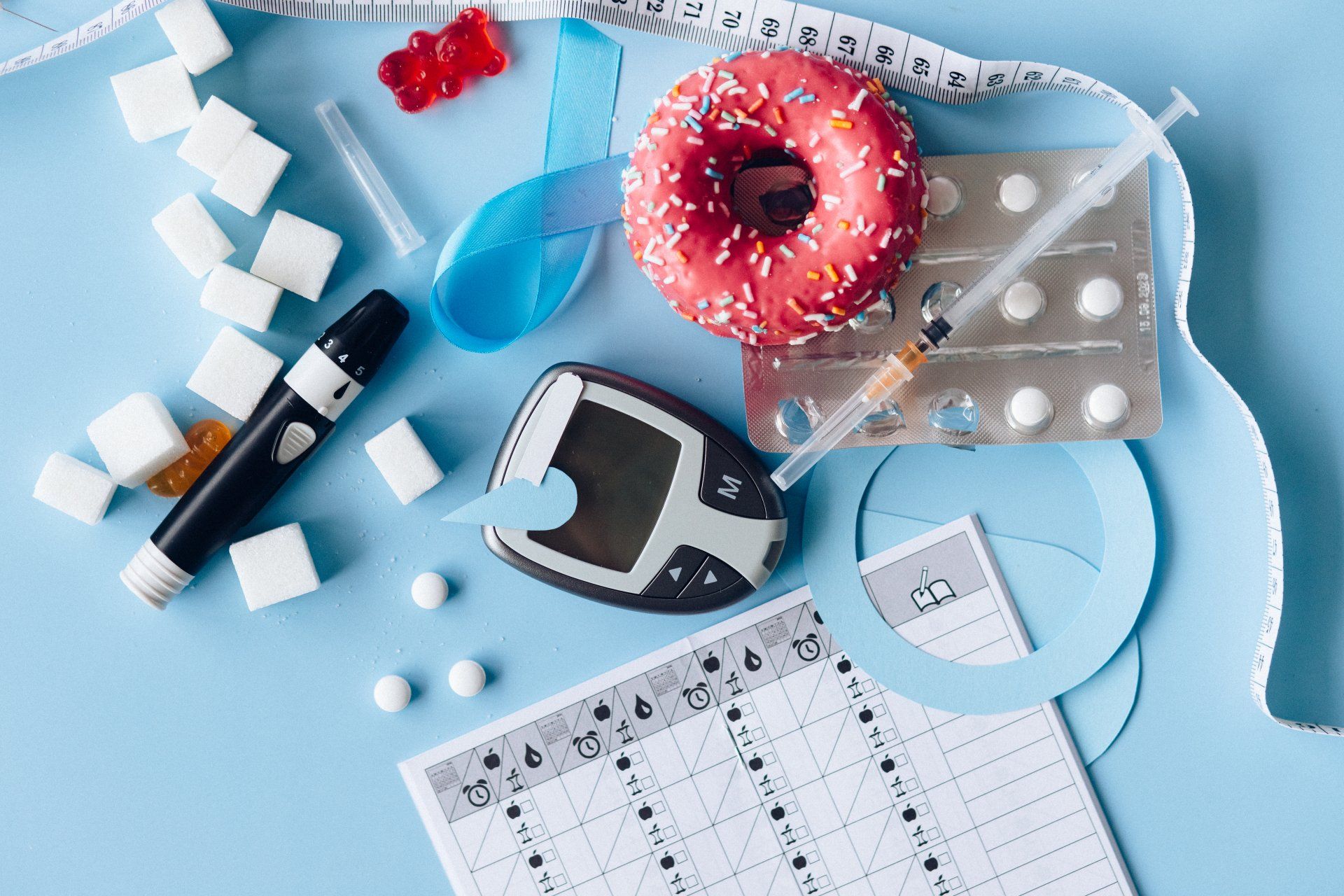The term "heart disease" is often used interchangeably with the term "cardiovascular disease."

Causes of heart arrhythmia
Common causes of abnormal heart rhythms (arrhythmias) or conditions that can lead to arrhythmias include:
· Heart defects you are born with (congenital heart defects)
· Coronary artery disease
· High blood pressure
· Diabetes
· Smoking
· Excessive use of alcohol or caffeine
· Drug abuse
· Stress
· Some over-the-counter medications, prescription medications, dietary supplements and herbal remedies
· Valvular heart disease
In a healthy person with a normal, healthy heart, it is unlikely for a fatal arrhythmia to develop without some outside trigger, such as an electrical shock or the use of illegal drugs. That is primarily because a healthy person's heart is free from any abnormal conditions that cause an arrhythmia, such as an area of scarred tissue.
However, in a heart that is diseased or deformed, the heart's electrical impulses may not properly start or travel through the heart, making arrhythmias more likely to develop.
Causes of congenital heart defects
Congenital heart defects usually develop while a baby is in the womb. Heart defects can develop as the heart develops, about a month after conception, changing the flow of blood in the heart. Some medical conditions, medications and genes may play a role in causing heart defects.
Heart defects can also develop in adults. As you age, your heart's structure can change, causing a heart defect.
Causes of cardiomyopathy
The cause of cardiomyopathy, a thickening or enlarging of the heart muscle, may depend on the type:
- Dilated cardiomyopathy. The cause of this most common type of cardiomyopathy often is unknown. It may be caused by reduced blood flow to the heart (ischemic heart disease) resulting from damage after a heart attack, infections, toxins, and certain drugs. It may also be inherited from a parent. It usually enlarges (dilates) the left ventricle.
- Hypertrophic cardiomyopathy. This type, in which the heart muscle becomes abnormally thick, usually is inherited. It can also develop over time because of high blood pressure or aging.
- Restrictive cardiomyopathy. This least common type of cardiomyopathy, which causes the heart muscle to become rigid and less elastic, can occur for no known reason. Or it may be caused by diseases, such as connective tissue disorders, excessive iron build-up in your body (hemochromatosis), the build-up of abnormal proteins (amyloidosis) or by some cancer treatments.
Causes of heart infection
A heart infection, such as endocarditis, is caused when an irritant, such as a bacterium, virus or chemical, reaches your heart muscle. The most common causes of heart infection include:
· Bacteria
· Viruses
· Parasites
Causes of valvular heart disease
There are many causes of diseases of your heart valves. You may be born with valvular disease, or the valves may be damaged by conditions such as:
· Rheumatic fever
· Infections (infectious endocarditis)
· Connective tissue disorders
Risk factors
Risk factors for developing heart disease include:
Age. Aging increases your risk of damaged and narrowed arteries and weakened or thickened heart muscle.
Sex. Men are generally at greater risk of heart disease. However, women's risk increases after menopause.
Family history. A family history of heart disease increases your risk of coronary artery disease, especially if a parent developed it at an early age (before age 55 for a male relative, such as your brother or father, and 65 for a female relative, such as your mother or sister).
Smoking. Nicotine constricts your blood vessels, and carbon monoxide can damage their inner lining, making them more susceptible to atherosclerosis. Heart attacks are more common in smokers than in non-smokers.
Certain chemotherapy drugs and radiation therapy for cancer. Some chemotherapy drugs and radiation therapies may increase the risk of cardiovascular disease.
Poor diet. A diet that is high in fat, salt, sugar, and cholesterol can contribute to the development of heart disease.
High blood pressure. Uncontrolled high blood pressure can result in hardening and thickening of your arteries, narrowing the vessels through which blood flows.
High blood cholesterol levels. High levels of cholesterol in your blood can increase the risk of formation of plaques and atherosclerosis.
Diabetes. Increases your risk of heart disease. Both conditions share similar risk factors, such as obesity and high blood pressure.
Obesity. Excess weight typically worsens other risk factors.
Physical inactivity. Lack of exercise also is associated with many forms of heart disease and some of its other risk factors, as well.
Stress. Unrelieved stress may damage your arteries and worsen other risk factors for heart disease.
Poor hygiene. Not regularly washing your hands and not establishing other habits that can help prevent viral or bacterial infections can put you at risk of heart infections, especially if you already have an underlying heart condition. Poor dental health also may contribute to heart disease.
Complications
Complications of heart disease include:
Heart failure. One of the most common complications of heart disease, heart failure occurs when your heart cannot pump enough blood to meet your body's needs. Heart failure can result from many forms of heart disease, including heart defects, cardiovascular disease, valvular heart disease, heart infections or cardiomyopathy.
Heart attack. A blood clot blocking the blood flow through a blood vessel that feeds the heart causes a heart attack, possibly damaging or destroying a part of the heart muscle. Atherosclerosis can cause a heart attack.
Stroke. The risk factors that lead to cardiovascular disease also can lead to an ischemic stroke, which happens when the arteries to your brain are narrowed or blocked so that too little blood reaches your brain. A stroke is a medical emergency — brain tissue begins to die within just a few minutes of a stroke.
Aneurysm. A serious complication that can occur anywhere in your body, an aneurysm is a bulge in the wall of your artery. If an aneurysm bursts, you may face life-threatening internal bleeding.
Peripheral artery disease. Atherosclerosis also can lead to peripheral artery disease. When you develop peripheral artery disease, your extremities — usually your legs — do not receive enough blood flow. This causes symptoms, most notably leg pain when walking (claudication).
Sudden cardiac arrest. Sudden cardiac arrest is the sudden, unexpected loss of heart function, breathing and consciousness, often caused by an arrhythmia. Sudden cardiac arrest is a medical emergency. If not treated immediately, it is fatal, resulting in sudden cardiac death.
Prevention
Certain types of heart disease, such as heart defects, cannot be prevented. However, you can help prevent many other types of heart disease by making the same lifestyle changes that can improve your heart disease, such as:
· Quit smoking
· Control other health conditions, such as high blood pressure, high cholesterol, and diabetes
· Exercise at least 30 minutes a day on most days of the week
· Eat a diet that is low in salt and saturated fat
· Maintain a healthy weight
· Reduce and manage stress
· Practice good hygiene
Treatment
Heart disease treatments vary by condition. For instance, if you have a heart infection, you will likely be given antibiotics. In general, treatment for heart disease usually includes:
Lifestyle changes. These include eating a low-fat and low-sodium diet, getting at least 30 minutes of moderate exercise on most days of the week, quitting smoking, and limiting alcohol intake.
Medications. If lifestyle changes alone are not enough, your doctor may prescribe medications to control your heart disease. The type of medication will depend on the type of heart disease.
Medical procedures or surgery. If medications are not enough, it is possible your doctor will recommend specific procedures or surgery. The type of procedure will depend on the type of heart disease and the extent of the damage to your heart.
Lifestyle and home remedies
Heart disease can be improved — or even prevented — by making certain lifestyle changes. The following changes can help anyone who wants to improve heart health:
Stop smoking. Smoking is a major risk factor for heart disease, especially atherosclerosis. Quitting is the best way to reduce your risk of heart disease and its complications.
Control your blood pressure. Ask your doctor for a blood pressure measurement at least every two years. He or she may recommend more frequent measurements if your blood pressure is higher than normal or you have a history of heart disease. Optimal blood pressure is less than 120 systolic and 80 diastolic, as measured in millimeters of mercury (mm Hg).
Check your cholesterol. Ask your doctor for a baseline cholesterol test when you are in your 20s and then at least every five years. You may need to start testing earlier if high cholesterol is in your family. If your test results are not within desirable ranges, your doctor may recommend more frequent measurements.
Most people should aim for an LDL level below 130 milligrams per decilitre (mg/dL), or 3.4 millimoles per litre (mmol/L). If you have other risk factors for heart disease, you should aim for an LDL below 100 mg/dL (2.6 mmol/L). If you are at extremely high risk of heart disease — if you've already had a heart attack or have diabetes, for example — aim for an even lower LDL level — below 70 mg/dL (1.8 mmol/L).
Keep diabetes under control. If you have diabetes, tight blood sugar control can help reduce the risk of heart disease.
Move. Exercise helps you achieve and maintain a healthy weight and control diabetes, elevated cholesterol, and high blood pressure — all risk factors for heart disease. If you have a heart arrhythmia or heart defect, there may be some restrictions on the activities you can do, so talk to your doctor.
With your doctor's OK, aim for 30 to 60 minutes of physical activity most days of the week.
Eat healthy foods. A heart-healthy diet based on fruits, vegetables, and whole grains — and low in saturated fat, cholesterol, sodium and added sugar — can help you control your weight, blood pressure and cholesterol.
Maintain a healthy weight. Being overweight increases your risk of heart disease. A BMI of less than 25 and a waist circumference of 35 inches (88.9 centimeters) or less is the goal for preventing and treating heart disease.
Manage stress. Reduce stress as much as possible. Practice techniques for managing stress, such as muscle relaxation and deep breathing.
Deal with depression. Being depressed can increase your risk of heart disease significantly. Talk to your doctor if you feel hopeless or uninterested in your life.
Practice good hygiene. Stay away from people with infectious diseases such as colds, get vaccinated against the flu, regularly wash your hands, and brush and floss your teeth regularly to keep yourself well.
Also, get regular medical check-ups. Early detection and treatment can set the stage for a lifetime of better heart health.
What you can do in the meantime? It is never too early to make healthy lifestyle changes, such as quitting smoking, eating healthy foods and becoming more physically active. These are primary lines of defense against heart disease and its complications.
What is the leading cause of death in the world?
Cardiovascular disease is the top cause of death globally. In the map we see death rates from cardiovascular diseases across the world.
- How many people die per day from heart disease?
- The age-adjusted death rate attributable to cardiovascular disease (CVD), based on 2017 data, is 219.4 per 100,000. On average, someone dies of CVD every 37 seconds in the U.S. There are 2,353 deaths from CVD each day, based on 2017 data. On average, someone in the U.S. has a stroke every 40 seconds. Jan 29, 2020
- What percentage of the population has heart disease?
- Nearly half (48 percent, 121.5 million in 2016) of all adults in the United States have some type of cardiovascular disease, according to the American Heart Association's Heart and Stroke Statistics -- 2019 Update, published in the Association's journal Circulation. Jan 31, 2019
- What is the most common age to get heart disease?
- Your risk for heart disease increases with age, especially with people of color and for those who are over 65. While the average age for a heart attack is 64.5 for men, and 70.3 for women, nearly 20 percent of those who die of heart disease are under the age of 65.
- Who is most affected by heart disease?
- Heart disease is the leading cause of death for men, women, and people of most racial and ethnic groups in the United States. One person dies every 36 seconds in the United States from cardiovascular disease. About 655,000 Americans die from heart disease each year—that's 1 in every 4 deaths. Sept 8, 2020
Thank you for your support in reading this article and hopefully, you have found it beneficial.
"Providing Better Health Through Knowledge"




